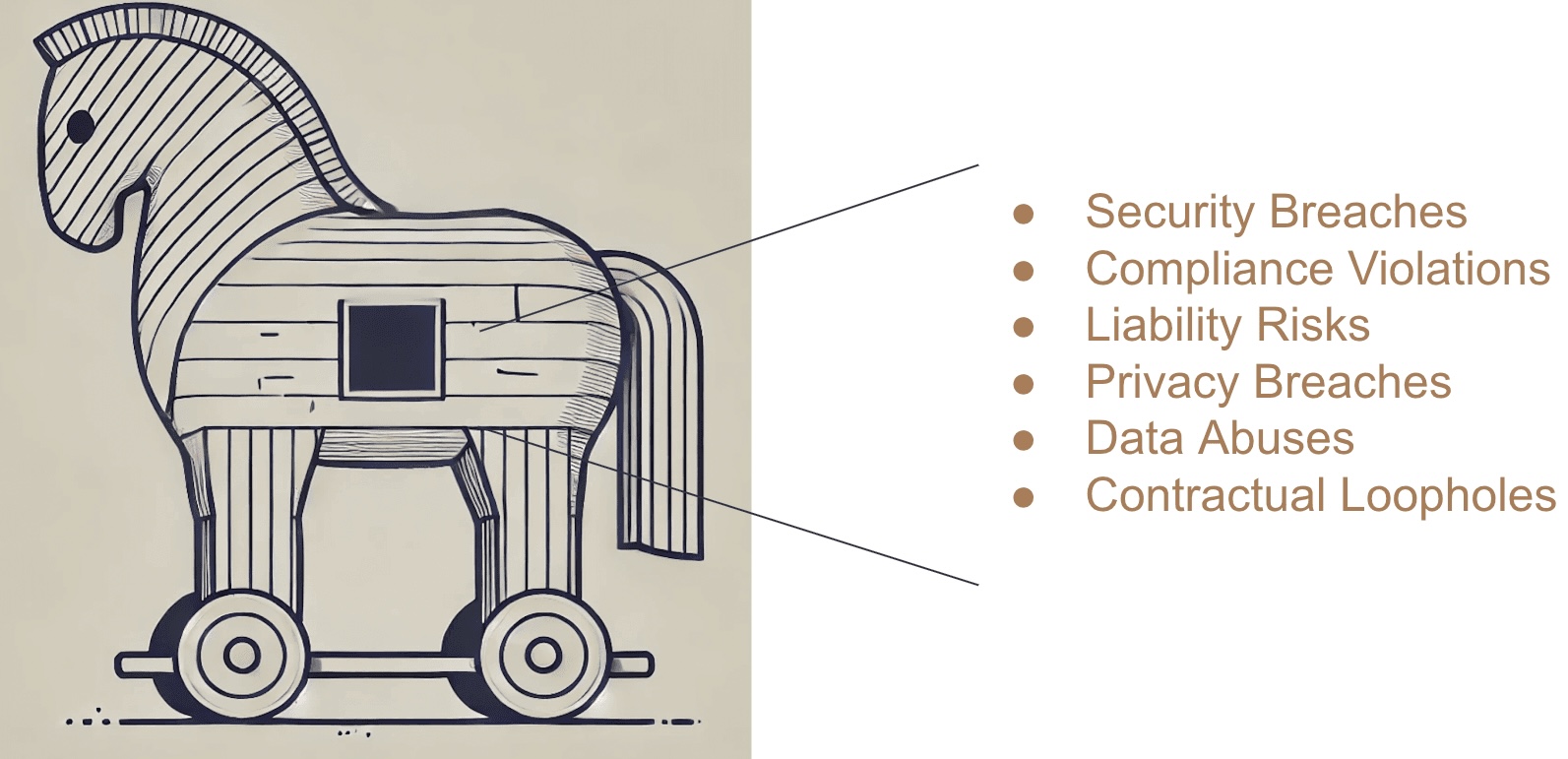The AI Revolution in Healthcare
AI is revolutionizing healthcare, with nearly 1,000 FDA-cleared medical devices incorporating AI. However, widespread adoption faces significant barriers, including patient safety, privacy, security, bias, transparency, and compliance.
Why Traditional IT Governance Falls Short
Traditional IT governance frameworks weren't designed for AI systems. AI introduces unique challenges:
- Model Drift: AI models can degrade over time as data patterns change
- Bias Detection: AI can perpetuate or amplify existing biases in healthcare data
- Explainability: Many AI models are "black boxes" that are difficult to interpret
- Continuous Learning: AI systems that learn and adapt require ongoing oversight
The Need for Specialized AI Governance
Healthcare organizations need governance frameworks specifically designed for AI systems. This includes:
Risk Assessment and Management
AI governance must include comprehensive risk assessment that covers both technical and clinical risks. This involves evaluating model performance, bias potential, and clinical impact.
Regulatory Compliance
With evolving regulations from FDA, ONC, and other bodies, healthcare AI governance must ensure compliance with current and emerging requirements.
Clinical Validation
AI systems in healthcare require rigorous clinical validation to ensure they improve patient outcomes without introducing new risks.
Ongoing Monitoring
Unlike traditional software, AI systems require continuous monitoring for performance degradation, bias drift, and clinical effectiveness.
Implementing Effective AI Governance
Effective AI governance requires a combination of people, processes, and technology. Organizations need:
- Clear policies and procedures for AI development and deployment
- Cross-functional teams including clinical, technical, and regulatory expertise
- Automated monitoring and alerting systems
- Regular audit and review processes
- Documentation and evidence management systems
The Path Forward
As AI becomes increasingly central to healthcare delivery, organizations that implement robust AI governance frameworks will be better positioned to realize the benefits of AI while managing the risks. The key is to start with a solid foundation and iterate as the technology and regulatory landscape evolves.
Specialized AI governance isn't just a nice-to-have—it's becoming a necessity for healthcare organizations that want to deploy AI safely and effectively at scale.
